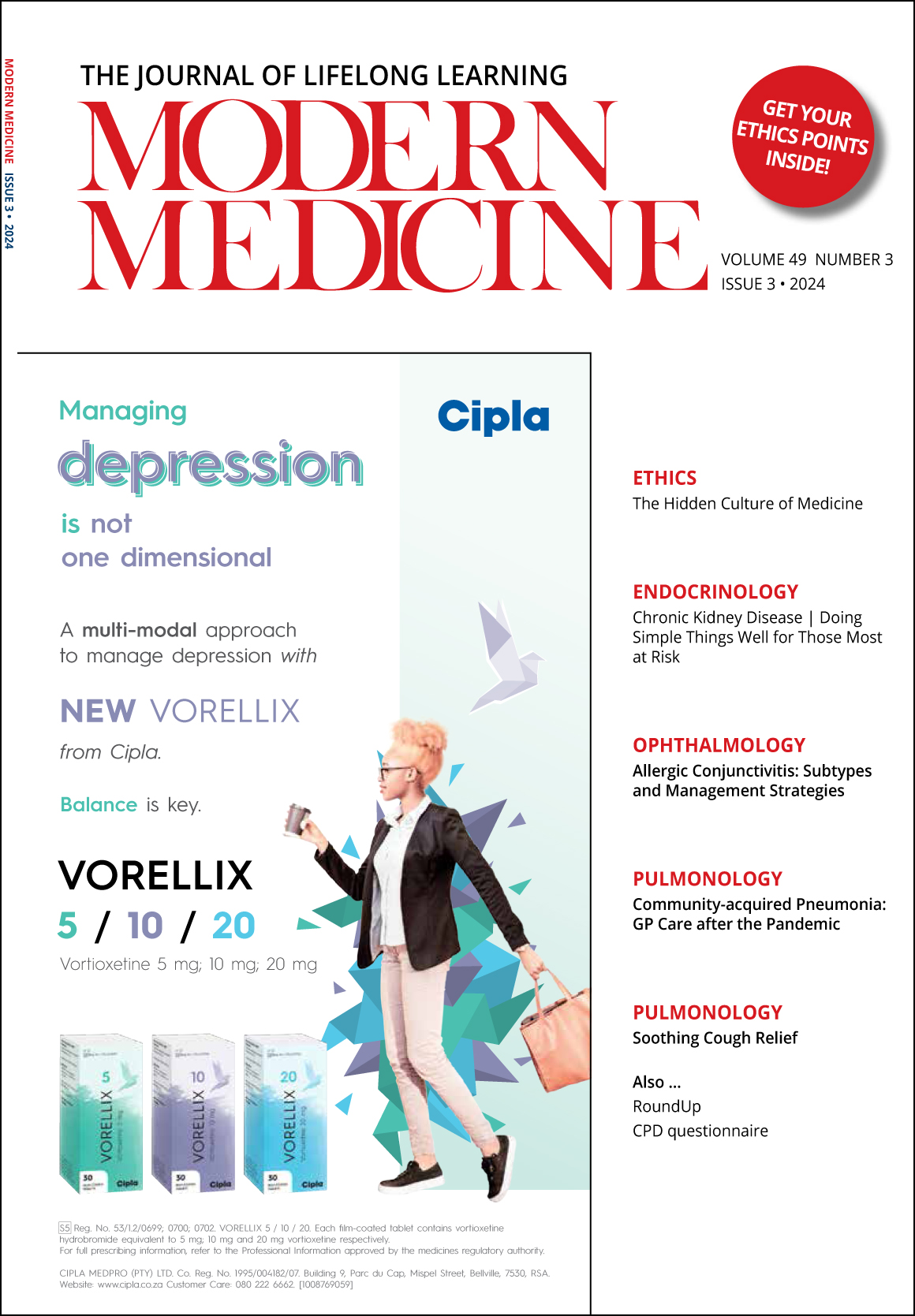Anxiety Disorders are Notoriously Undertreated
Anxiety disorders are the most prevalent psychiatric disorders and are associated with a high burden of illness. With a 12-month prevalence of 10.3%, specific (isolated) phobias are the most common anxiety disorders, although persons suffering from isolated phobias rarely seek treatment. Panic disorder with or without agoraphobia is the next most common type with a prevalence of 6.0%, followed by social anxiety disorder (also called social phobia; 2.7%) and generalised anxiety disorder (GAD; 2.2%). Alprazolam is the most commonly prescribed psychotropic medication for anxiety and panic disorders in the US.
Modern Medicine – Issue 4 2024





